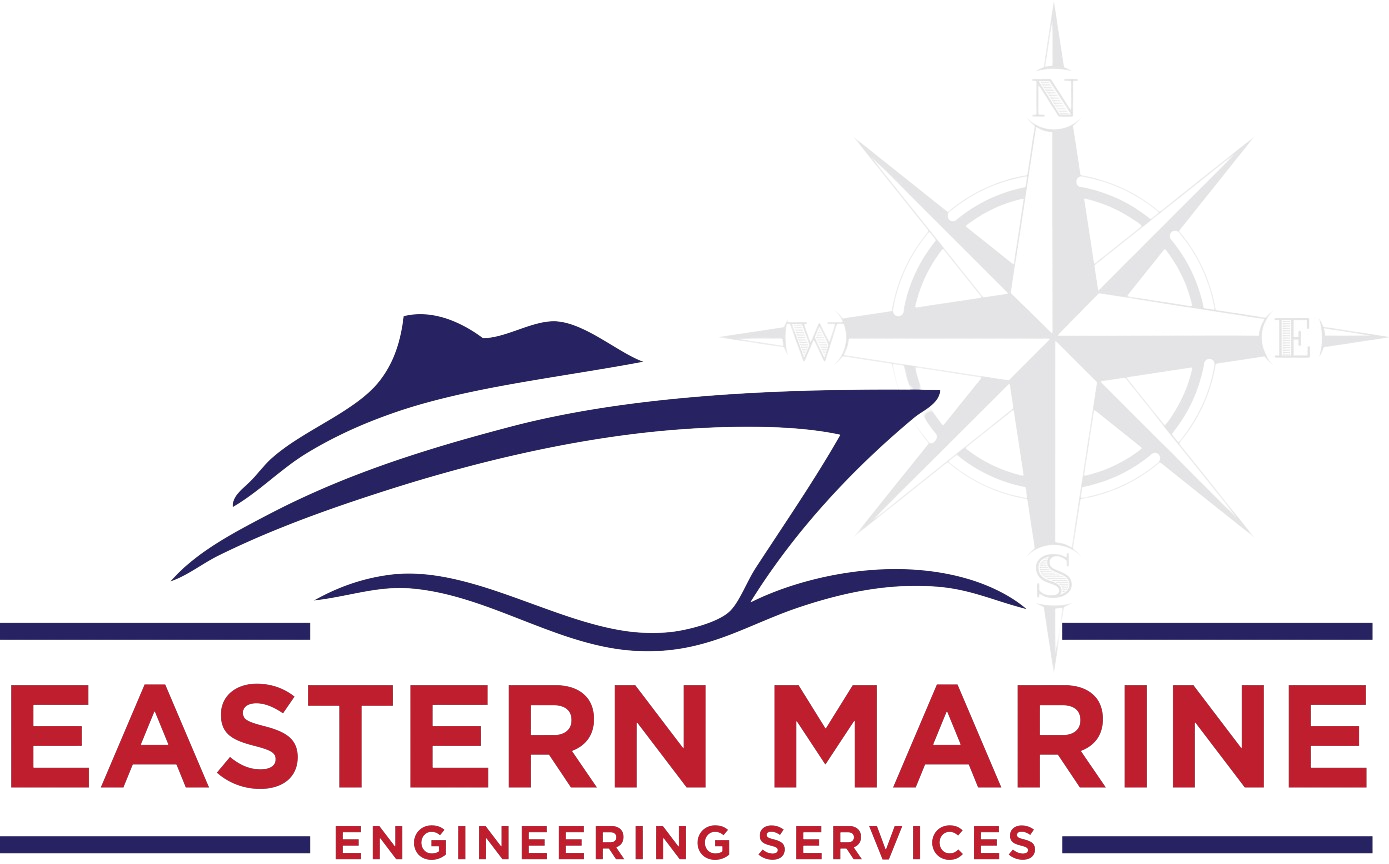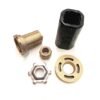- Empty cart.
- Continue Shopping
7 Reasons Marine Diesel Engines Won’t Leave You Feeling Like Boat-Grilled Chicken
Boat trips should be relaxing and enjoyable, not uncomfortable because of the heat. Many petrol engines can get very hot, making the cabin and engine area feel like an oven. This heat can cause stress and spoil your time on the water.
Marine diesel engines work differently. They run cooler and are safer, helping to keep your boat comfortable. In this blog, you will find seven reasons why diesel engines help you avoid that unpleasant “boat-grilled chicken” feeling and make your time at sea much better.
1. Lower Heat Output Means No More Roasting Onboard
One of the most noticeable differences between diesel and petrol engines is how much heat they produce. Diesel engines burn fuel at a lower temperature, which means the overall heat output is reduced. This translates into engine areas and cabins that stay significantly cooler, even on the hottest days under the sun.
Petrol engines, on the other hand, generate more heat as a by-product of their combustion process. This excess heat often radiates into the engine compartment and living areas, turning them into virtual ovens. Passengers and crew can end up sweating and uncomfortable, which detracts from the pleasure of being out on the water.
The cooler operation of diesel engines helps protect your boat’s internal components. Sensitive electronics and equipment are exposed to less heat, which can extend their lifespan and reduce maintenance costs. Lower temperatures also ease thermal stress on engine parts, helping to prevent premature wear and increase the overall durability of the engine.
2. Less Flammable Fuel Means Reduced Fire Risks at Sea
Safety is a top priority on any vessel, and the choice of fuel can make a significant difference. Diesel fuel is far less flammable than petrol. It requires a much higher temperature to ignite, making it much safer in the event of a leak or spill.
Petrol vapours are highly volatile and can ignite quickly, creating a serious fire hazard on board. This risk can be a source of concern for boat owners and operators, especially when working in tight engine compartments or during refuelling.
Choosing a marine diesel engine lowers the chances of fire-related incidents. This safer fuel characteristic provides reassurance to the crew and passengers alike. In situations where safety equipment or procedures may be compromised, the inherent stability of diesel fuel offers an added layer of protection, helping to prevent potentially disastrous fires at sea.
3. Longer Trips Without Overheating Like a BBQ Plate
Long journeys on the water can put a great deal of strain on a boat’s engine. Petrol engines, with their tendency to produce excess heat, can sometimes overheat during extended use. This not only risks engine damage but can also force unwanted stops and repairs.
Marine diesel engines are engineered to cope with long hours of continuous operation without reaching unsafe temperatures. Their combustion process and cooling systems are designed to manage heat more effectively, ensuring the engine runs smoothly throughout the trip.
For anyone planning longer cruises, fishing trips, or commercial operations, this reliability is crucial. You can trust that your diesel engine will not “cook” itself or the surrounding boat areas, reducing interruptions and improving overall trip enjoyment. Consistent, cool operation leads to fewer breakdowns and a better experience for all on board.
4. Safer Engine Temperatures Protect Boat, Crew, and Gear
The operating temperature of an engine can have wide-reaching effects beyond the engine itself. Diesel engines generally run at safer, more stable temperatures compared to their petrol counterparts. This steadiness provides protection for both the boat’s structure and the people on board.
Hot engine parts and exhaust systems pose burn risks, especially for those working in or around the engine compartment. Cooler engine temperatures lower the chance of accidental burns and heat-related injuries, which is particularly important during emergencies or maintenance.
The boat’s materials also last longer because diesel engines run cooler. Too much heat can cause plastics, rubbers, and sealants in the engine area and cabins to warp, crack, or break down. Running cooler helps prevent this damage and means fewer repairs and replacements.
5. Quieter Running That Does Not Cook Your Mood
Noise is often an overlooked factor in boating comfort. Engine noise, vibration, and rattling can cause fatigue and irritability during long periods on the water. Diesel engines generally operate with less noise and vibration than petrol engines, which makes for a far more pleasant experience.
A diesel engine’s quieter performance lets passengers appreciate the natural sounds of the sea and environment. It makes chatting easier and creates a more peaceful atmosphere. This lower noise level is especially helpful for families, anglers, and commercial crews who spend extended time on the boat.
Reduced vibration also benefits the boat’s structure and fittings, minimising the risk of loose parts or damage over time. Less noise and vibration mean a calmer, more enjoyable trip for everyone, helping to keep your mood cool rather than “fried”.
6. Designed to Handle Heat So You Don’t Have To
Marine diesel engines come equipped with advanced cooling systems specifically designed to manage engine temperature efficiently. These systems often include seawater-cooled exhausts, thermostatically controlled coolant flow, and heat exchangers that regulate temperature even under heavy loads.
These features allow the engine to maintain an optimal operating temperature regardless of the weather or how hard the engine is working. You do not need to constantly worry about overheating or take extra precautions to cool down the engine manually.
This design feature allows you to concentrate on navigating and enjoying your time on the water without any distractions. By managing heat efficiently, the engine delivers consistent performance and helps prevent sudden breakdowns or shutdowns caused by overheating.
7. Peace of Mind That Keeps Your Crew Cool and Happy
With safer fuel, lower heat output, quieter performance, and effective cooling, marine diesel engines provide real confidence on board. Knowing your engine is less likely to overheat or cause hazards helps keep your crew relaxed and secure throughout the journey.
This peace of mind is invaluable, whether you are out on a weekend trip with family, working long days in commercial operations, or providing marine services. It allows you to concentrate on the purpose of your journey rather than worrying about engine safety or discomfort.
Choosing a marine diesel engine means prioritising the well-being of your crew and passengers. It means fewer interruptions, less stress, and a better overall boating experience.
Keep Your Boat Safe and Cool with Diesel Engines
Boat trips are meant to be fun and comfortable, without too much heat or worries about fire. Marine diesel engines are a better and safer choice because they run cooler and use fuel that is much less likely to catch fire than petrol. This helps you avoid feeling like a “boat-grilled chicken” and keeps everyone on board safer.
Thanks to their advanced cooling systems and quieter operation, marine diesel engines deliver reliable, efficient performance on long trips, protecting both your boat and crew from heat-related issues. Opting for Mercury Diesel engines from Eastern Marine ensures your time on the water is cooler, safer, and far more relaxing—making the switch to diesel a decision every boat owner can feel confident about.





